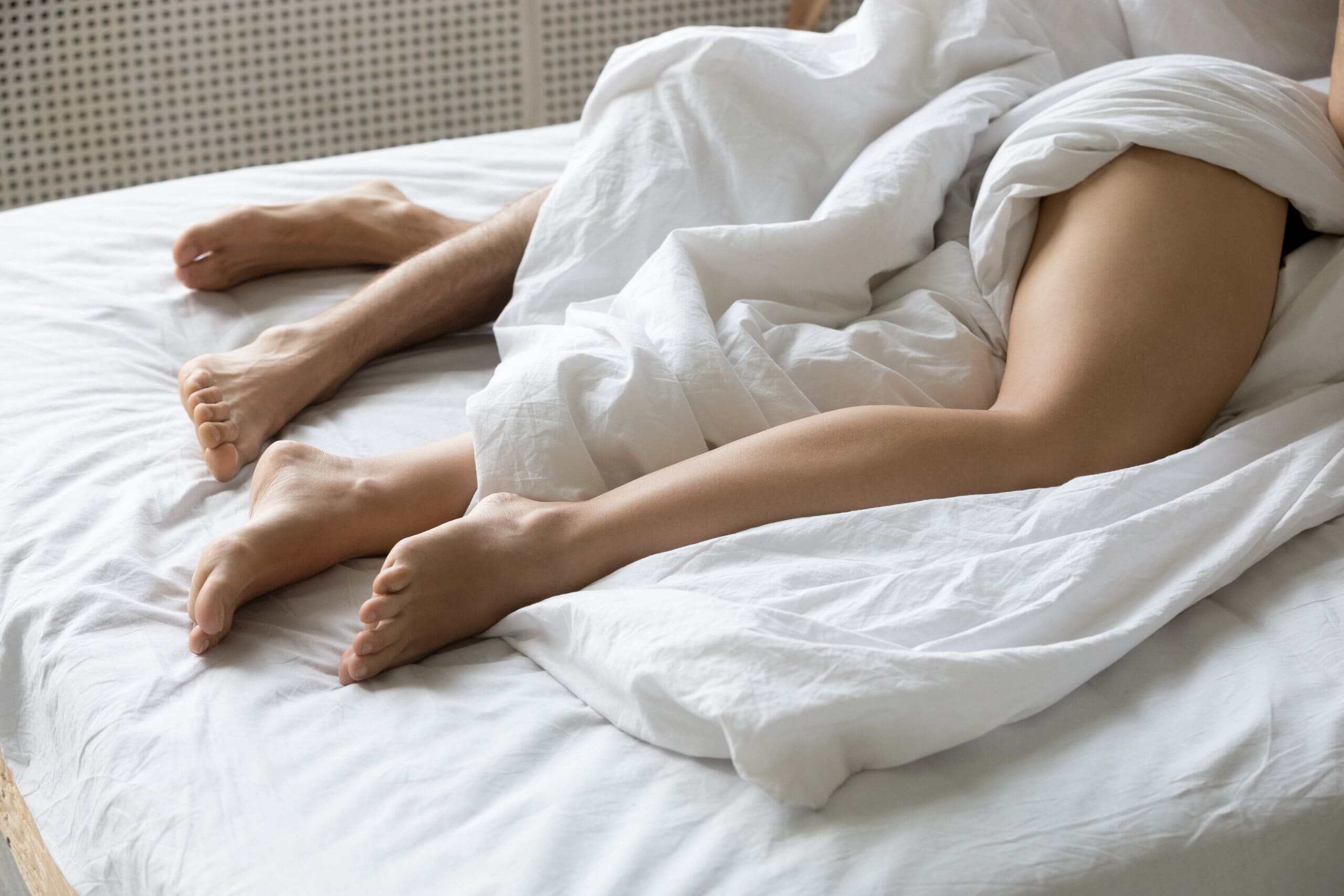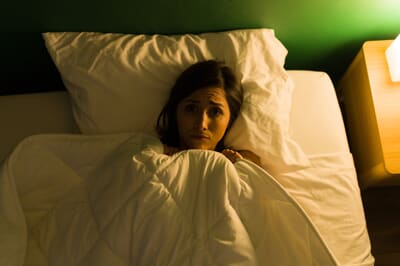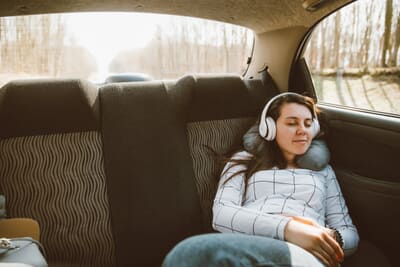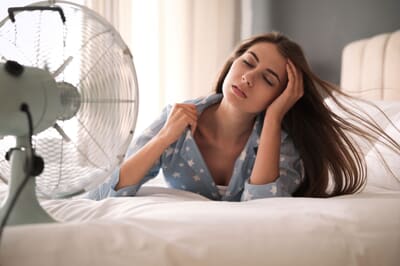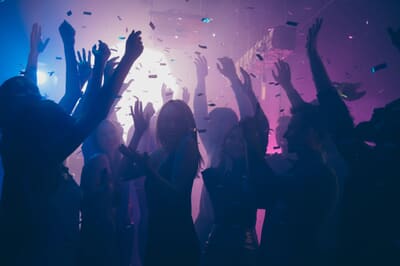Whether or not you sleep naked, in pyjama bottoms, or fully wrapped up in a snuggly onesie, what you sleep in reveals a lot more about your sleeping habits beyond what's on your body.
Despite how warm and comforting your pyjamas might be, it turns out there could be plenty of benefits that come with sleeping in the nude, and it might be why as many as 23% of the population prefer to sleep naked!
But what exactly are the benefits of sleeping naked, and is it healthier to sleep naked or should you avoid snoozing in the nude? Keep reading to find out the surprising facts below!
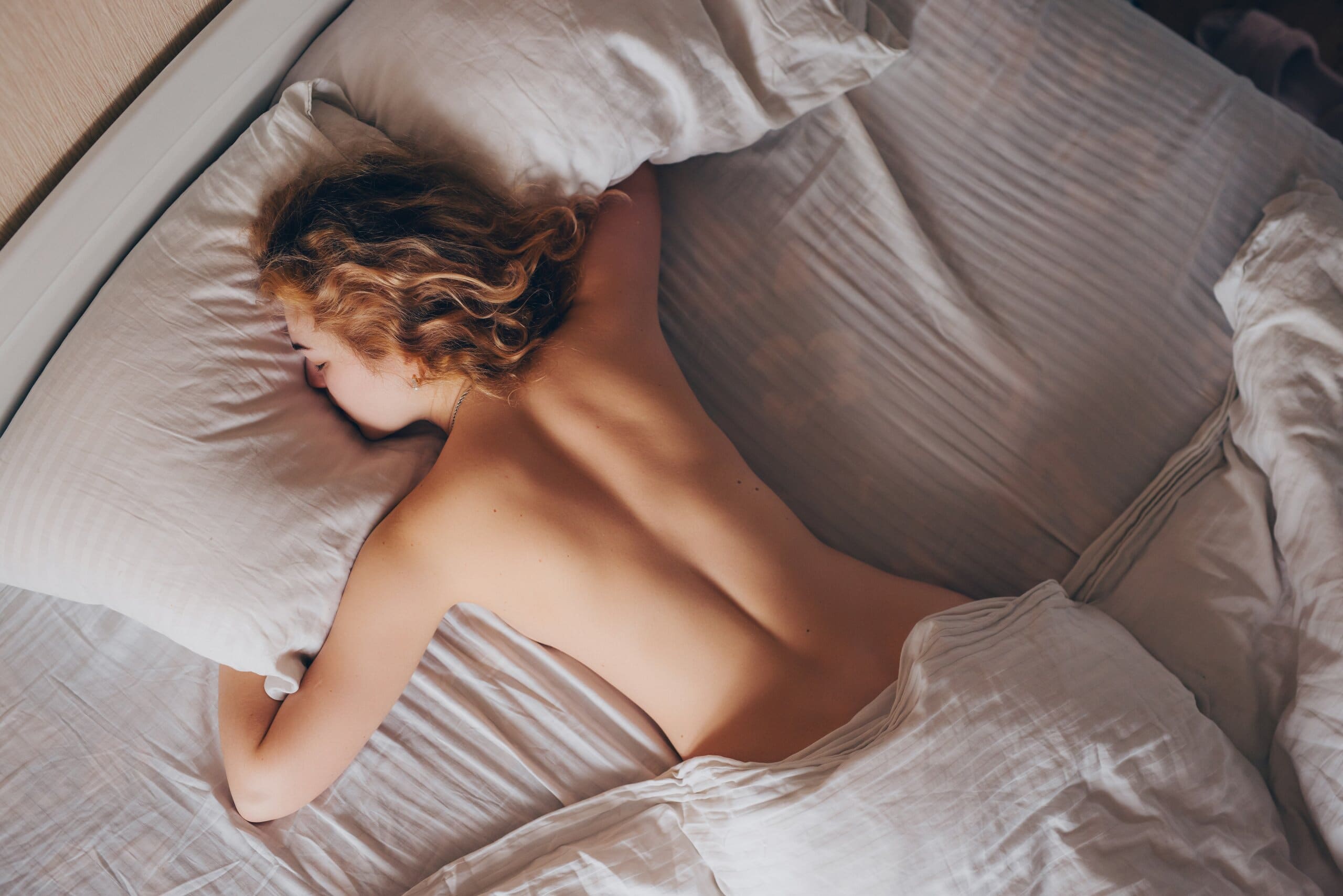
Is sleeping naked good for you?
First things first, let’s answer the question – “Is it healthier to sleep naked?”. And to that we say, yes, there are absolutely health benefits associated with sleeping naked – both physically and mentally.
For one thing, sleeping naked allows your skin to breathe, cutting down on the build-up of sweat on your body, which in turn will reduce bacteria levels in your bed. Better yet, napping au naturel enables your body to better regulate its temperature, helping you to stay cool at night rather than waking up with a dry mouth and dehydrated.
In other words, sleeping naked can help to promote improved sleep quality overall, as better temperature regulation minimises the chances of you experiencing sleep disruption and discomfort over the course of the night.
How does sleeping naked regulate your body temperature?
Besides keeping us cool at night, lowering our core body temperature is actually very important for the production of melatonin – the sleep hormone!
Essentially, in the run-up to bed, our bodies will naturally start to lower our temperature to create more melatonin. This makes us tired and helps us to fall asleep once our heads hit the pillow. Then, as morning approaches, our internal temperature will rise again to help wake you up.
Thus, sleeping naked aids this process, as there are no heat-trapping pyjamas to get in the way of your core temperature dropping, ensuring that you get to sleep quickly after turning in for the night and don’t wake up sweaty early in the morning.
What are the physical benefits of sleeping naked?
So, besides helping your body maintain a healthy sleeping temperature, what other physical benefits are associated with sleeping naked? We’ve highlighted the most important aspects of sleeping without clothes on here:
- Improved sleep quality – alongside maintaining a low body temperature, sleeping naked lowers the chances of experiencing discomfort from your pyjamas creasing or rubbing against your bedding, helping you to sleep for longer and more consistently.
- Minimal sweating – as we’ve already mentioned, sleeping without pyjamas on reduces how much you sweat. But besides reducing bacteria levels in your bed, less sweating can also promote healthier skin, as there’s less chance of your pores getting blocked with gunk.
- Reduced dehydration – although it’s impossible to avoid a light level of dehydration while sleeping, by sleeping nude and sweating less, you’ll wake up feeling more refreshed and less thirsty.
- Less chance of overheating – it goes without saying that overheating can seriously hinder your chances of getting better deep sleep at night, especially if you’re struggling to sleep in the summer. Fortunately, sleeping naked allows your body to more easily dissipate heat and cool you down, ensuring your core body temperature stays level on warm nights.
- Better reproductive health – lastly, and perhaps somewhat surprisingly, many studies have shown that sleeping naked can lead to better reproductive health for both sexes. Lower temperatures help to promote a higher sperm count in men while reducing the chances of yeast infections in women, both of which contribute to an improved sex life.
What are the psychological benefits of sleeping naked?
Besides being better for your body’s physical health, there are actually numerous psychological benefits that come from sleeping without clothes on as well, all of which can promote a greater sense of overall well-being.
For one thing, plenty of people have noted that sleeping nude makes them feel more 'free’, which in turn helps them to relax and improve their sleep quality. And as an added bonus, many couples have reported increased levels of intimacy when they both sleep naked, alongside greater levels of self-esteem, as they’re more comfortable with their bodies.
But why is this the case? Well, when we experience skin contact with our partners, we produce higher levels of oxytocin, which you may know as the love hormone. This helps us form a stronger bond with our partner and is just one of the many benefits that come from cuddling.
Naturally, this increased intimacy will also help you feel more emotionally connected to your partner, so why not check out our best mattresses for sex if you’re looking to make your intimate time in the bedroom more comfortable?
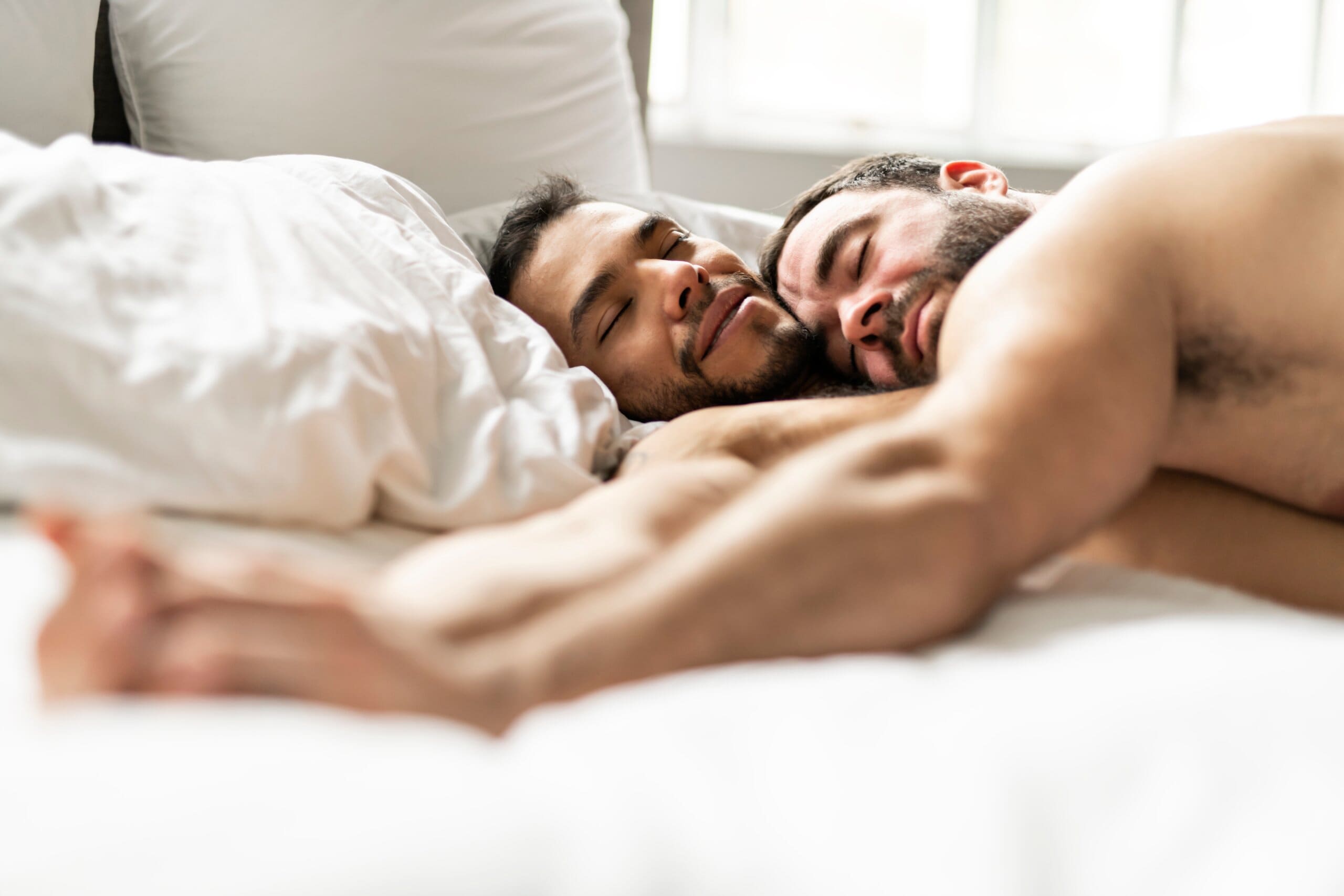
Should you stop wearing pyjamas to bed?
Even though there are plenty of benefits to sleeping naked, as with anything, there are some exceptions to the rule, and there may very well be scenarios where it’s better for you to sleep clothed rather than nude.
For example, people prone to urinary tract infections will certainly benefit from wearing loose, cotton underwear to bed, though you should check with your doctor for the best course of action for you in this regard.
On top of this, people with certain skin sensitivities or compromised immune systems might need to wear pyjamas to limit their contact with potential allergens in the air. Plus, if you have bad blood circulation, you might need to wear pyjamas and socks to warm up your feet in bed.
And, of course, if you’re comfortable sleeping in pyjamas and it’s not disrupting your sleep, then there’s no reason for you to start sleeping naked. After all, how we sleep is down to personal preference, and you should sleep in the way that helps you get the best night’s sleep possible on a consistent basis.
Tips for how to start sleeping naked
If you’ve read all of the above and you’re now considering testing out nude sleeping yourself, what are some of the things you can do to make the process of moving from sleeping in pyjamas to sleeping naked more comfortable?
We’ve listed our top recommendations below:
- Do it gradually – if you’ve never slept nude before, then it can be quite a change to go from sleeping in pyjamas to sleeping without clothes on. That’s why we recommend making the transition gradually, removing individual items of clothing over time until you’re happy sleeping without them.
- Maintain room temperature – no one likes sleeping in a room that’s too warm or too cold, especially if you’re sleeping nude, so make sure you keep your room at a level temperature that means you’re not shivering or sweating at night.
- Find comfortable bedding – much like finding the right pyjamas, it’s very important that you find a comfortable choice of bedding if you plan to sleep naked so that you’re not waking up in the night from chaffing or itchy sheets.
- Shower before bed – taking a shower before bed has two key benefits for anyone planning on sleeping naked. For one thing, it will help to lower your body temperature, making getting to sleep easier, as well as helping to keep your sheets clean by minimising the level of bacteria transfer from your body to your bed at night.
- Have clothes nearby – although unlikely, should you suddenly need to get dressed at night, or you get too cold, having clothes nearby will make it easier to get dressed at short notice if you have to.
- Tell your partner – last, but not least, if you share your bed with your partner, make sure you tell them that you’re going to try sleeping naked. This is not only polite and prevents any sudden surprises for them, but it gives you the chance to invite them to try it with you!
Enjoy a great night’s sleep with MattresssNextDay
And there you have it! Those are the key benefits that come with sleeping naked and why you might want to try it for yourself if you find you’re constantly too warm in bed!
Of course, if you’re perfectly comfortable temperature-wise in bed, but you’re still struggling to sleep, then you might want to consider investing in a new mattress or bed frame from our range!
We have plenty of cooling gel mattresses that can make your naked night's sleep even fresher, or snuggly bedding that will make sure you don't get cold even in the nude! And with our free next day delivery, you can optimise your sleep setup to start sleeping naked as soon as tomorrow!
